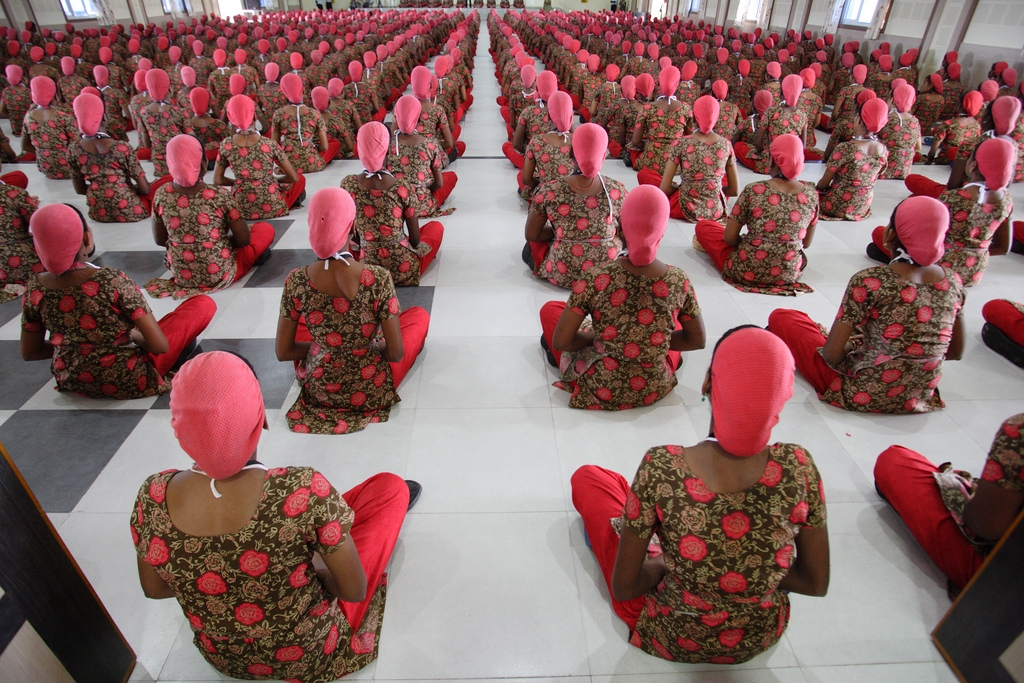
Exploitation in Indian clothing industry
The report ‘Captured by Cotton’ by SOMO and the India Committee of the Netherlands (ICN) was recently published, looking at South Indian girls and young women who are making our clothing in wretched conditions. This evoked responses from businesses and politicians, and was given a great deal of media coverage. Furthermore, various companies have acknowledged the issue and are working together with interested parties on an improvement plan. SOMO and LIW will be following up on concrete developments in this area.
European and American companies are having clothing made in Tamil Nadu (India) by girls in wretched conditions. There is abuse taking place, and false promises are being made. This is mainly taking place with Dalit – casteless – girls, below 18 years of age. The girls are put to work via the Sumangali Scheme. SOMO and the India Committee of the Netherlands (ICN) examine these issues in the report Captured by Cotton. The report pays special attention to four large Indian integrated manufacturers: Eastman Exports, SSM India, Bannari Amman and KPR Mill. They supply companies including Bestseller (Only, Jack & Jones and others), C&A, Diesel, GAP, Marks & Spencer, Primark, Tommy Hilfiger and Inditex (including Zara). A number of companies are working to improve the situation, but nevertheless, exploitation is still occurring frequently. In May 2011, many national and regional daily newspapers covered the report ‘Captured in Cotton’ and the poor working conditions in relation to the clothing we wear, originating from European and American companies.
In August 2010, a number of journalists visited the KPR Mill factory in India, at the invitation of the European Coalition for Corporate Justice, ECCJ. This was followed by many articles in newspapers, magazines and on websites. Fashion sites also paid attention to the subject. Volkskrant journalist Ana van Es focused attention on this exploitation of workers in India in a series of articles. She recently won the Dick Scherpenzeel incentive prize with these articles, awarded to journalists under 26 years of age who write about development issues. “There were many reactions to the articles,” said Van Es, “both from shocked readers and from politicians. It has resulted in social pressure, which can be very effective. The knowledge and contacts of SOMO were exceptionally useful in this investigation. Something like this would otherwise have taken a lot more time. It was a fruitful cooperation for both parties. The Dick Scherpenzeel incentive prize is, of course, an encouragement for me to write about exploitation more often.”
Questions in Dutch Parliament
In a debate during question time in the Lower House (24 May), Ferrier (Member of Parliament, CDA) asked Minister Bleker (Economic Affairs, Agriculture and Innovation) what he would be doing about the abuses, such as those described in the report ‘Captured by Cotton’. Bleker promised to address the question during his trade mission to India (from 6 to 10 June 2011). Unfortunately, Bleker did not take part in the trade mission. Furthermore, Bleker promised to enter into discussions with C&A. This company is one of the customers of the Indian manufacturers visited by SOMO and ICN. C&A is expected to report on improvements in six months’ time.
Clothing brands promise improvement
SOMO and ICN provided copies of a draft of the report Captured by Cotton to the companies investigated. Nine companies (including C&A, Bestseller and Primark) sent a joint response. The other companies did not respond, or only gave extremely superficial responses. In their joint response to the growth of the Sumangali Scheme, and other labour rights infringements, the nine companies announced that they intended to tackle them jointly. They have issued promising statements, acknowledged the issue and are working together with local and international NGOs, trade unions and other interested parties on an improvement plan. At this stage, however, these are still only intentions. For now there are insufficient commitments to concrete, time-limited activities, however. SOMO and ICN have been urging all companies who have clothing made in Tamil Nadu to immediately take concrete steps to put an end to the Sumangali system and other labour rights infringements.
Meanwhile, research by NGOs, stories in the media and inspections at suppliers have made companies aware of the exploitative nature of the Sumangali Scheme. A number of companies have taken a clear position against these practices, and have developed improvement plans. The SOMO/ICN study shows that there have been promising improvements since August 2010 at Eastman, and several steps towards improvements at KPR Mill. SOMO and ICN are continuing to actively monitor the policies and activities of companies producing and purchasing in Tamil Nadu. In carrying out the research, SOMO cooperates a great deal with the Clean Clothes Campaign.
Textile sector
The Fair Wear Foundation and the Dutch textile sector recognise the issue and have publicly expressed their intention to tackle this situation, and continue to tackle it. The Ethical Trading Initiative has also spoken out against this undesirable situation.
Go to the website of the Fair Wear Foundation(opens in new window) .
Read the response of the Dutch textile sector here (opens in new window) (CBW-MITEX, MODINT and VGT).
Partners
Related news
-
 Dutch State accused of failing to prevent genocidePosted in category:Case
Dutch State accused of failing to prevent genocidePosted in category:Case Lydia de LeeuwPublished on:
Lydia de LeeuwPublished on: -
-
 The Counter: strengthening the fight for climate justice around the worldPosted in category:Long read
The Counter: strengthening the fight for climate justice around the worldPosted in category:Long read Luis ScungioPublished on:
Luis ScungioPublished on:

